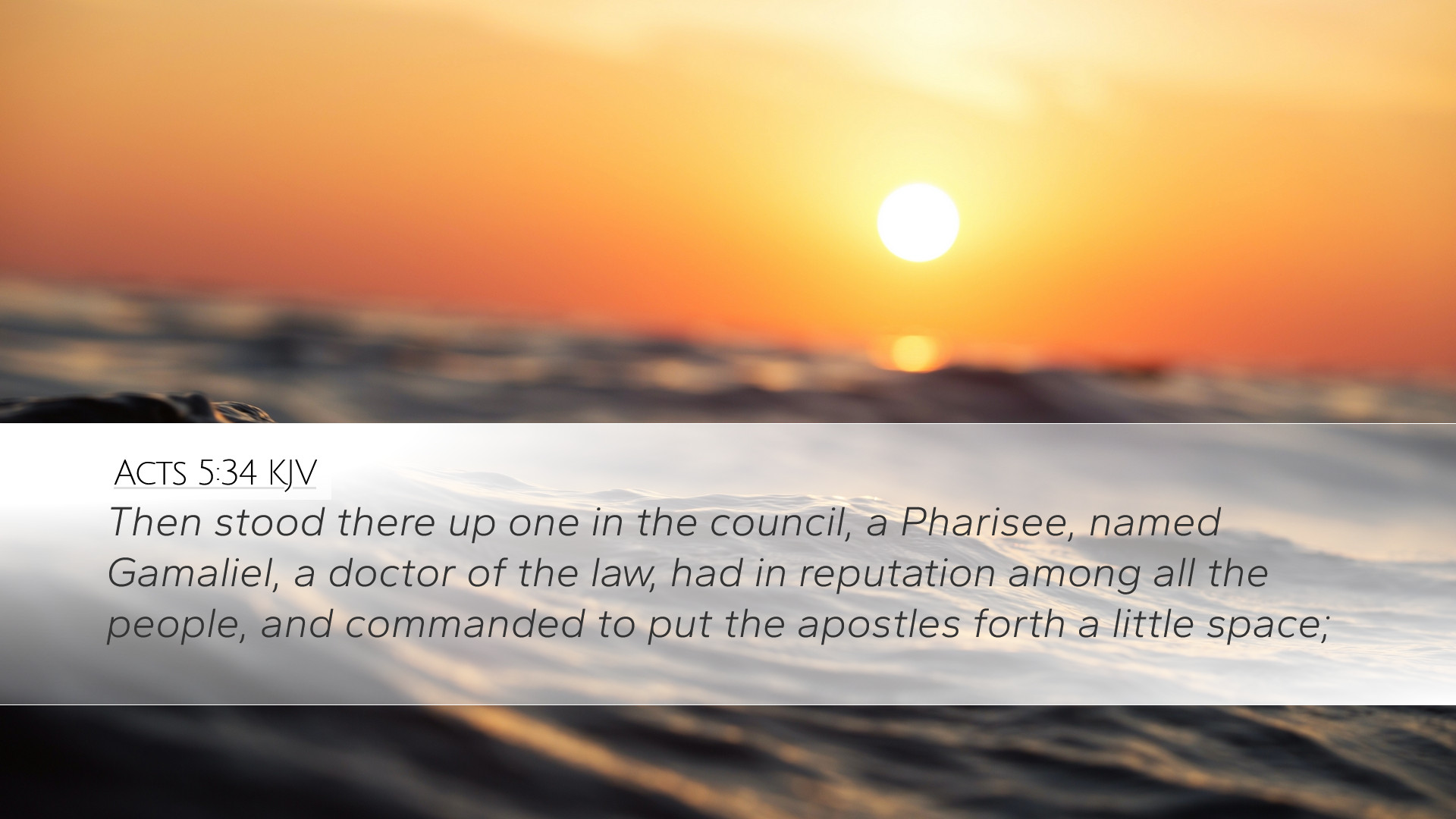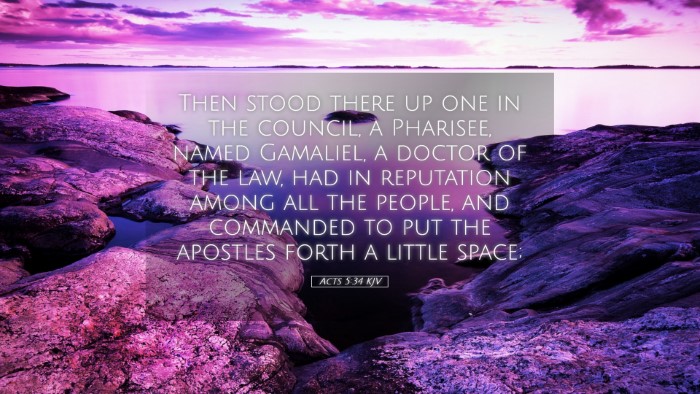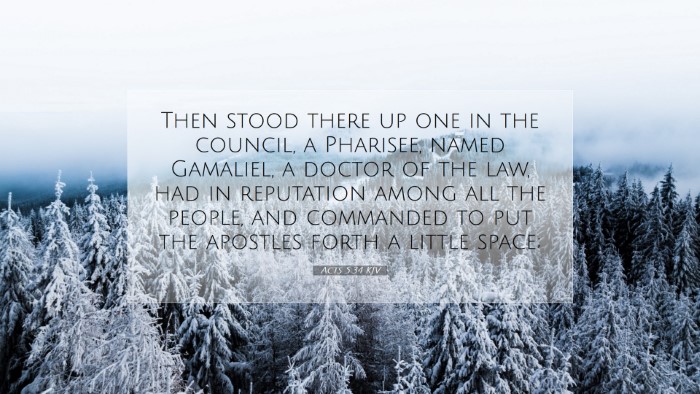Commentary on Acts 5:34
Acts 5:34 states, "But a Pharisee named Gamaliel, a teacher of the law who was honored by all the people, stood up in the Sanhedrin and ordered that the men be put outside for a little while." This verse introduces Gamaliel, a significant figure in Jewish history and thought, who plays a critical role in the early church's struggle against opposition from the Jewish authorities. Through the lens of renowned Bible commentators, we explore the implications and insights yielded by this text.
Contextual Overview
In the broader narrative of Acts, the apostles have been preaching the gospel and performing miracles, which has drawn the ire of the religious authorities. The context is one of rising tension as the early church faces persecution. In this light, Gamaliel's intervention is pivotal.
Insights from Commentaries
Matthew Henry's Commentary
Gamaliel's Wisdom: Henry highlights that Gamaliel's reputation as a respected Pharisee lends weight to his counsel. He emphasizes the importance of weighing actions against historical precedents. Gamaliel recalls other movements that fizzled out, suggesting that the apostles' movement, too, could fail if it is not of God.
Humanity in Judgment: Additionally, Henry notes that Gamaliel's approach demonstrates prudence and a desire for justice. By calling for the apostles to be temporarily removed, he ensures that their plight is considered without the heat of the moment clouding the judgment of the council members.
Albert Barnes' Notes
Pragmatic Approach: Barnes elaborates on Gamaliel's pragmatic approach, asserting that he presents a reasoned argument rather than an emotional response to the ongoing situation. He states that true movements of God cannot be thwarted by human opposition, which resonates deeply with students of theology concerned with understanding God's sovereign purpose.
Historical Examples: Likewise, Barnes points to Gamaliel's references to Theudas and Judas of Galilee, pointing out that both men led movements that ultimately failed. This historical recall serves as a framework for the Sanhedrin to evaluate the apostles—implying that if the apostles were not ordained by God, their mission will ultimately fail.
Adam Clarke's Commentary
Philosophical Depth: Clarke adds a philosophical layer to Gamaliel's speech. He argues that the Pharisee's wisdom stems from a broader understanding of human actions and divine purpose. Gamaliel poses a critical question: how can they stand against something that may be divinely ordained?
Nature of Authority: Clarke notes that this moment also illuminates the nature of authority within the Jewish leadership structure. Gamaliel's authority, derived from his status as a teacher of the law, allows him to speak out. His appeal to historical precedent encourages the Sanhedrin to act cautiously, which can be a powerful lesson for modern leaders faced with contentious issues.
Theological Implications
This verse and Gamaliel’s reasoning present several theological implications:
- Divine Sovereignty: The idea that God's plans will prevail reminds the faithful of the ultimate futility of opposing divine authority, encouraging trust and patience in the unfolding of God's purposes.
- Caution in Judgement: The call to evaluate situations with prudence and a historical lens underscores the need for humility and discernment in church leadership.
- Respect for Others' Beliefs: Gamaliel's respectful consideration of the apostles' cause offers a model for engagement, advocating for dialogue rather than mere condemnation when faced with differing beliefs.
Application for Pastors and Theologians
For pastors, Gamaliel serves as an exemplar of wise leadership during challenging times. Applying his principles of careful consideration can assist in navigating congregational conflicts and cultural shifts with grace.
Theologians may find in Gamaliel's stance a foundation for discussions on the intersection of faith and history, emphasizing the importance of understanding God’s hand in human events.
Students of the Bible are encouraged to reflect on the importance of context and historical awareness when interpreting Scripture. The ability to draw lessons from history is vital for robust theological education.
Conclusion
Acts 5:34 offers a profound commentary on leadership, divine sovereignty, and the necessity of wise counsel in the church. By considering the insights from Matthew Henry, Albert Barnes, and Adam Clarke, readers can appreciate the multi-faceted nature of Gamaliel's influence and draw significant lessons appropriate for pastoring, teaching, and living out the faith in a complex world.


